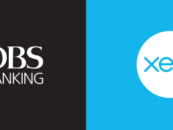
Banking On Social Networks Is Real And It’s Coming; Chat Banking
by Fintech News Singapore July 29, 2016Social media have changed the way we socialize, interact, consume, and will soon change the way we bank and manage our finances.

Image credit: Facebook on mobile by tsyhun / Shutterstock.com
Admit it, Facebook is the first app you open when you wake up in the morning or while you head to the office. And that’s okay. Social networks are now a part of our daily routines, becoming almost instinctive and an automatic habit.
We use social media to share with others, keep up with our friends and families, but also to read the news, check out that new hot bar that’s just opened downtown, or share about how disastrous our experience was at that particular restaurant.
To show you how social media and social networks have taken over our lives, let me give you some figures. These are the world’s leading social networks ranked by number of monthly active users, according to Statista:
- Facebook: 1,590 billion monthly active users;
- WhatsAspp: 1 billion monthly active users;
- Facebook Messenger: 900 million monthly active users and 60 billion messages a day combined (that’s three times the number of traditional text messages);
- Tencent QQ: 853 million monthly active users;
- and WeChat: 697 million monthly active users.
These figures show how social networks have become important to us, and how critical it is for corporates to be active on these popular, crowded channels.
Internet giants and social media platforms have already expanded their reaches to provide functionalities other than fun GIFs and cool clips.
In the banking and finance area, Facebook Pay, Snapcash by Snapchat, WeChat’s integrated payment solution and Kakao Pay in Kakao Talk in South Korea, are all evidences that a new era is coming, an era where we would use Facebook Messenger to check our bank account balance and send money to our friends.
In Southeast Asia, Singaporean Fastacash is a fintech that is surfing on the new trend. The company has developed a social payment technology platform that allows users to transfer any form of payment across any social and messaging channel, from anywhere in the world. The platform acts as an “agnostic hub that sits between the financial and social worlds, providing transaction capabilities and connecting people,” according to Fastacash.
Through partnerships with local banks and financial services firms, Fastacash has managed to launch services in several countries including India, Indonesia, Russia, Singapore and Vietnam, and counts over a million end-users.
Robots everywhere; Chat Banking
Alongside social payments, a new trend is emerging with the introduction of chatbots that are perceived by many as the next disruptors.

Image by Ociacia via Shutterstock
Already, banks are looking to utilize Facebook Messenger chatbots to provide automated banking services. For instance, Absa Group, also known as Barclays Africa, launched last week ChatBanking for Facebook, a new tool that lets customers conduct banking without having to leave the social media platform. The launch followed the bank’s introduction of Absa ChatBanking on Twitter in May. The tool allows customers to get their “actual and available” balance on a transactional account, the ability to buy airtime or data for a cellphone registered to their account, as well as a mini-statement showing most recent transactions on their account.
Russia-based Toshka Bank of the Otkritie Financial Group, too, has released a similar tool not so long ago. Earlier this month, the bank introduced its Facebook banking chatbot, which, similarly to Absa’s ChatBanking, allows clients to check their accounts, but also find nearby ATMs using geolocation, call the bank, contact customer support and make payments via Facebook’s messaging app.
According to a recent report by the Financial Times, Singaporean banks are currently collaborating on a new service that would allow customers to make payments using Facebook IDs and Twitter username.
The new system will allow electronic transfers between account holders who have registered their social media identities with their banks, enabling them to make payments by selecting one’s Facebook ID instead of typing the typical account number and sort code.
The service will be based on Singapore’s existing internal fund transfer system, FAST, which brings together 20 banks, and a pilot is expected to take place in the first quarter of 2017.
Besides daily banking needs, other financial services firms are planning to use Facebook chatbots for trading services and personalized financial guidance. Two companies that are tackling this area are AJ Bell, a UK fund supermarket that intends to reach Millennials with a new trading service that would allow customers to buy and sell shares using Facebook Messenger; and Personetics, a provider of personalized digital guidance solutions, which launched its Personetics Anywhere chatbot in May this year, a tool that lets the bank customers to get up-to-date information and personalized guidance via Facebook Messenger and other messaging apps.
Featured image: Popular social media icons by quka, via Shutterstock.com.







